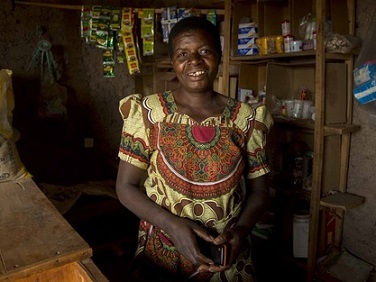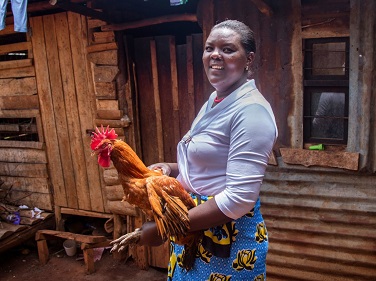AR our work with women tab two (Every Voice Counts)
Raising women’s voices in Afghanistan
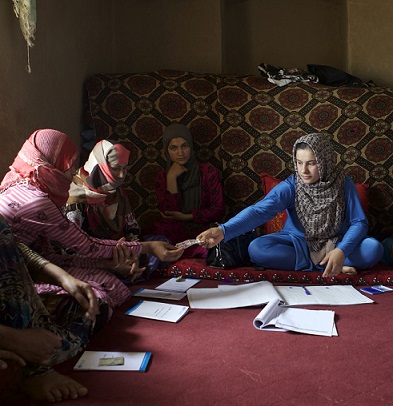
Members of the Almas Self-Help Group in Balkh Province, Afghanistan divide their group savings.
Last year, we teamed up with the Hilti Foundation and CARE, whose Every Voice Counts programme aims to help Afghan women speak up and be heard by local authorities and decision-makers. What would happen, we wondered, if Hand in Hand combined our business and skills training with CARE’s work helping women advocate for change in areas ranging from gender-based violence to women’s health? Does earning an income – and possessing the skills that entrepreneurship implies – make women more confident to speak up inside and outside the home?
By tracking three cohorts of women over two years – those who receive CARE’s training, those who receive Hand in Hand’s and those who receive both – we plan to find out. So far, the results are promising.
Earlier this year, almost a third of the way through programme, researchers from Global Impact Management Consulting conducted a mid-term review of the project. Already, 44 percent of women who receive both business training and social empowerment training reported having more influence and decision-making power in the home. Perhaps more surprisingly, an almost equal number of women who only receive Hand in Hand’s business training – 38 percent – reported the same. Both numbers are expected to increase as the programme, which also aims to create almost 1,000 new jobs, progresses.
By the numbers
44% of women report greater decision-making power at home (so far)
1,000 jobs created by project-end
7,000 lives improved by project-end
AR our work with women tab 4 (Resonate)
Boosting women’s confidence, incomes in Tanzania
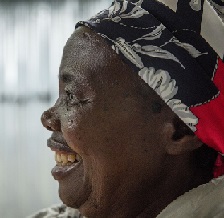
Self-Help Group member Silvester Mboya from Arusha, Tanzania.
Few barriers to women’s entrepreneurship are more fundamental than a lack of confidence. In January, we teamed up with Rwanda-based NGO Resonate to help even the playing field.
Resonate’s Storytelling for Leadership training has helped thousands of young women across East Africa gain the confidence to turn opportunity into microbusiness success by understanding their values and strengths. We want to find out if it also leads to higher incomes, which is why we’re teaching Resonate’s curriculum to 600 members in Arusha region over the next two years.
Learning from the pilot project will be mainstreamed country- and region-wide.
AR our work with women tab 3 (Cartier)
Changing men’s attitudes in Tanzania
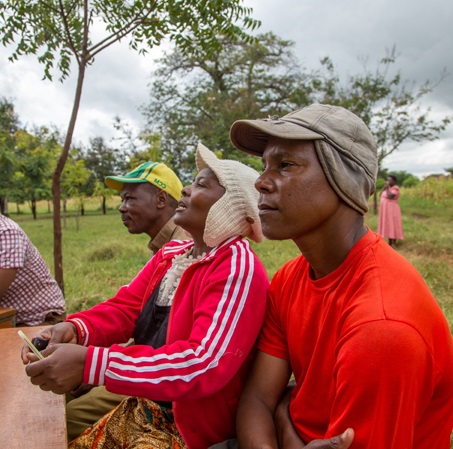
Male Self-Help Group members in Moshi, Tanzania.
Fighting for women’s entrepreneurship isn’t the sole responsibility of women. It’s also up to the men in their lives to support women’s decisions, contribute in the home and confront the damaging attitudes that hold women back.
In March 2019, we announced plans with Cartier Philanthropy and the US-based International Center for Research on Women (ICRW) to boost women’s economic empowerment in Tanzania by providing our business and skills training to 600 women. Departing from the norm, we’re also providing training to their husbands. Just like their women counterparts, these male participants will learn vocational skills and the basics of business. But they’ll also receive modules, in sharing domestic tasks, supporting their wives’ businesses and eliminating violence against women.
In order to generate the most solid learning we can, several tiers of control groups are being established. Half the women in the project will receive training without the involvement of their husbands, and half the men recruited will receive business and skills training only.
Scheduled to start in March, training was delayed due to coronavirus. A new completion date has been set for March 2023.
By the numbers
600 women
300 men
20% uplift in income
AR our work with women tab 2.1 (EVC) FINAL
Raising women’s voices in Afghanistan
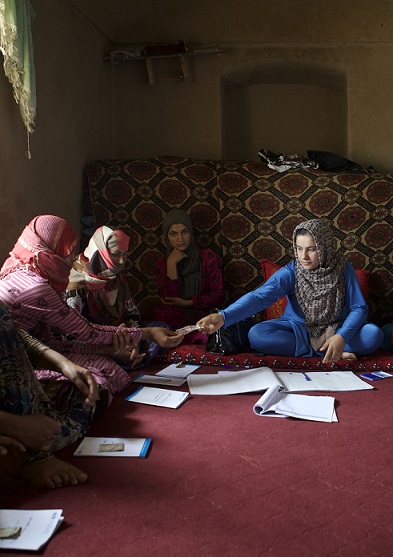
Last year, we teamed up with the Hilti Foundation and CARE, whose Every Voice Counts programme aims to help Afghan women speak up and be heard by local authorities and decision-makers. What would happen, we wondered, if Hand in Hand combined our business and skills training with CARE’s work helping women advocate for change in areas ranging from gender-based violence to women’s health? Does earning an income – and possessing the skills that entrepreneurship implies – make women more confident to speak up inside and outside the home?
By tracking three cohorts of women over two years – those who receive CARE’s training, those who receive Hand in Hand’s and those who receive both – we plan to find out. So far, the results are promising.
Earlier this year, almost a third of the way through programme, researchers from Global Impact Management Consulting conducted a mid-term review of the project. Already, 44 percent of women who receive both business training and social empowerment training reported having more influence and decision-making power in the home. Perhaps more surprisingly, an almost equal number of women who only receive Hand in Hand’s business training – 38 percent – reported the same. Both numbers are expected to increase as the programme, which also aims to create almost 1,000 new jobs, progresses.
44% of women report greater decision-making power at home (so far)
1,000 jobs created by project-end
7,000 lives improved by project-end
AR our work with women tab 1 (Visa)
Accelerating businesses in Kenya
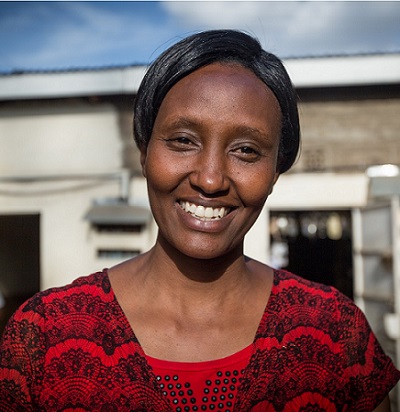 What happens when thousands of Kenya’s most promising women micro-entrepreneurs receive specialist training, financial services and mentor support to help level up their businesses? Thanks to a ground-breaking new partnership with Visa, we’re about to find out.
What happens when thousands of Kenya’s most promising women micro-entrepreneurs receive specialist training, financial services and mentor support to help level up their businesses? Thanks to a ground-breaking new partnership with Visa, we’re about to find out.
Launched in March with a US $2.4 million grant from Visa, the three-year project aims to reach 10,200 members in two groups in the slums of Greater Nairobi, the biggest anywhere in Africa. The first group, some 7,000 strong, will receive Hand in Hand’s tried and tested package of Self-Help Groups, business and skills training, financial inclusion and market linkages to help get their businesses launched and growing.
The second group, our Accelerator, aims to take established micro-businesses to new heights. Here, our trainers will select 1,600 pre-existing entrepreneurs for high-growth potential – including Hand in Hand’s most promising entrepreneurs from previous projects – with an eye to helping them scale up. Businesses in this category will range from retail shops and salons to garbage collectors, upcycled-waste producers and more.
Financial inclusion, a prerequisite to small-business growth, will feature centrally throughout the programme. At least 75 percent of members overall will be women.
By the numbers
10,200 members recruited
75% of members women
6,020 micro-businesses created
1,600 micro-businesses scaled up
the situation for women – zimbabwe
56% of Zimbabwean farmers are women
Only 11% of land is sole-owned by women
5.5 million Zimbabweans were food insecure during 2018-’19
With access to the same productive assets as men, women could increase yields by 30 percent
Expansion map
Hand in Hand works in four of Zimbabwe’s 10 provinces, representing about one-quarter of the country’s population.
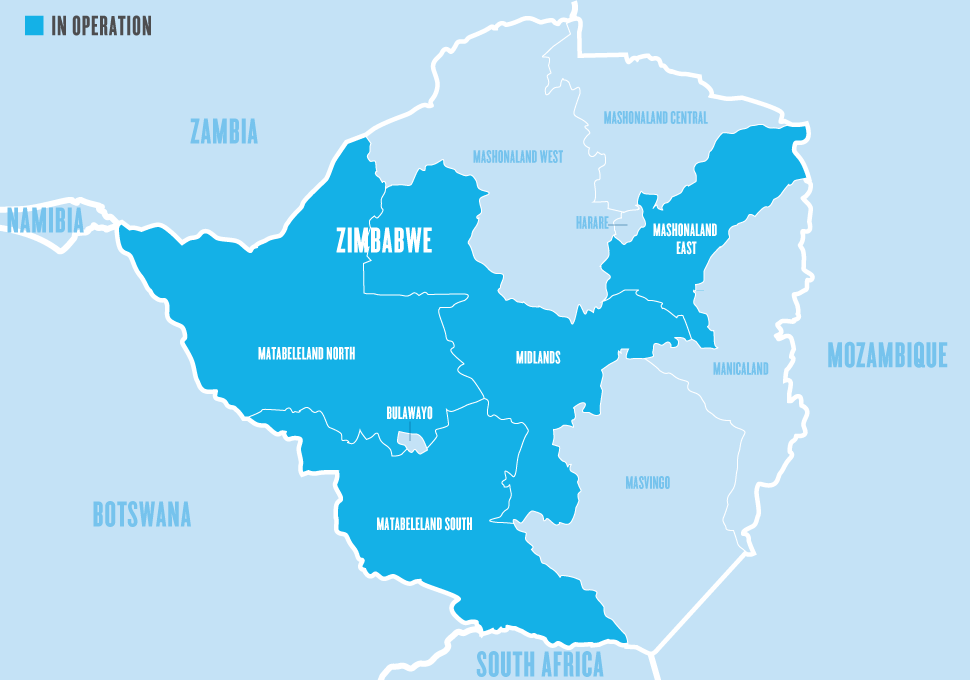
independent evaluations : india

Member survey
“Jobs supported by Hand in Hand India are long-lasting: more than 97% are sustained three years on from Hand in Hand’s initial support.”
Tanzania – expansion map
Tanzania – independent evaluations
Published by Ipsos, our Tanzania baseline study provides Hand’s in Hand’s clearest picture yet of life in our target areas and establishing the baseline by which future progress will be measured.
Kenya – independent evaluations
Survey of former members commissioned by Visa
‘In total, 95 percent of members said their life had improved’
Mid-term review commissioned by IKEA Foundation
The project played a ‘critical role…in creating rural opportunities for youth and women’
End-term evaluation of commissioned by Swedish government
‘Hand in Hand is a centre of excellence’


